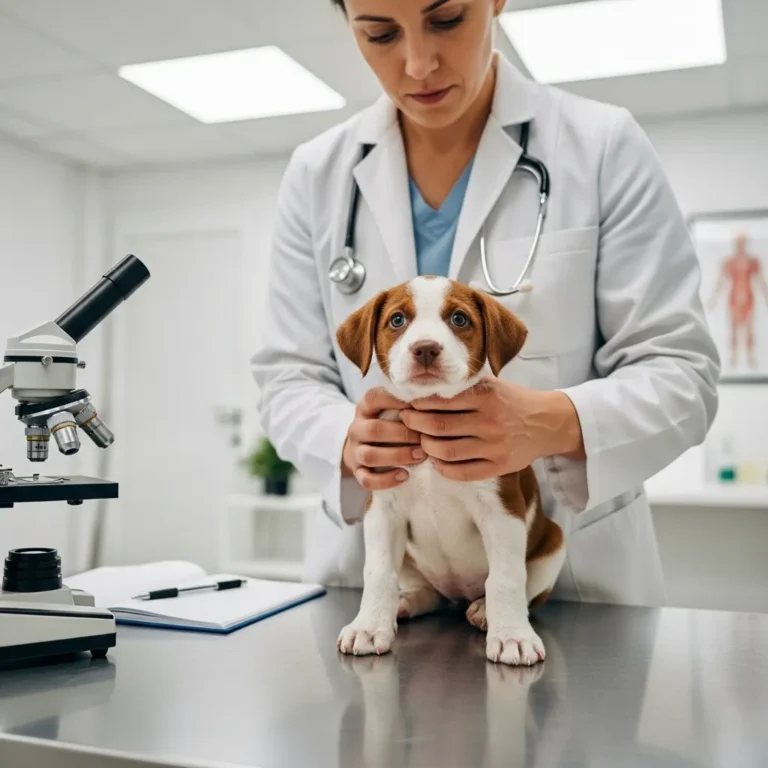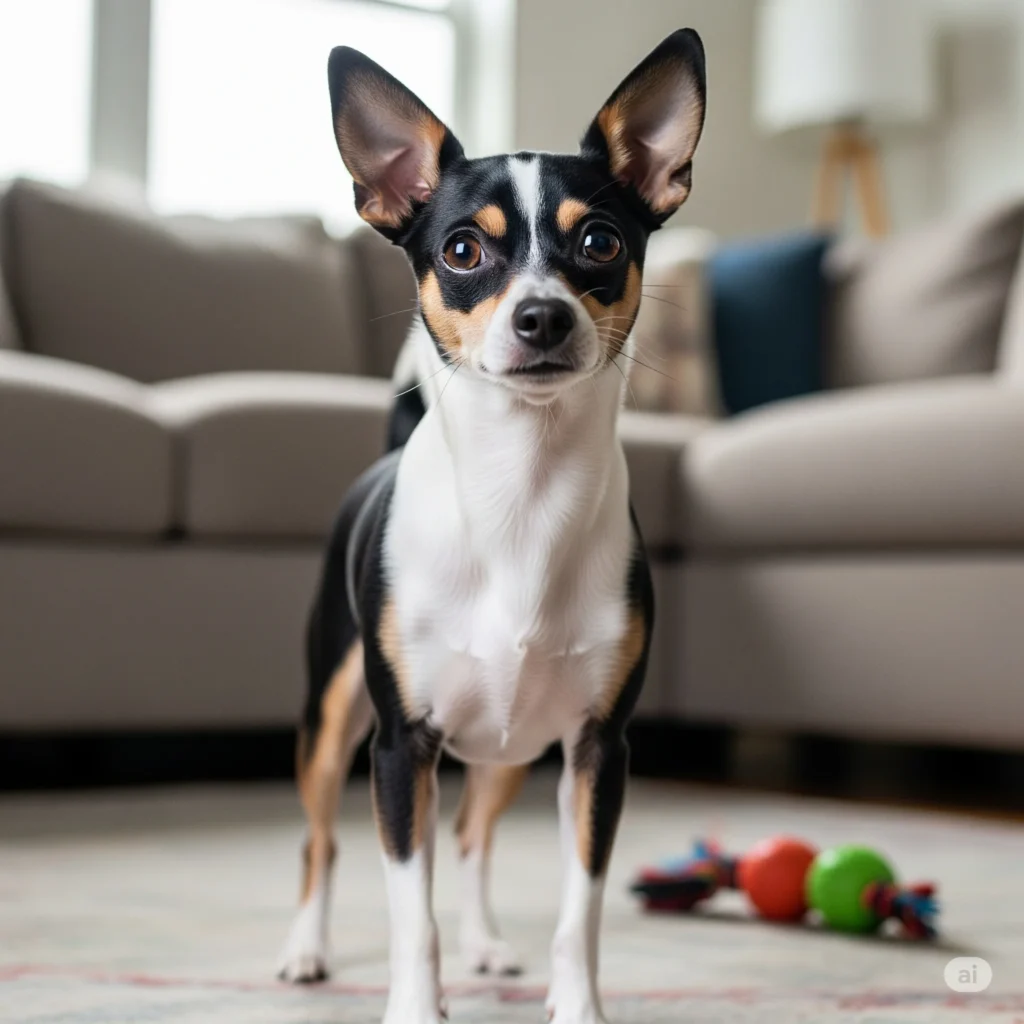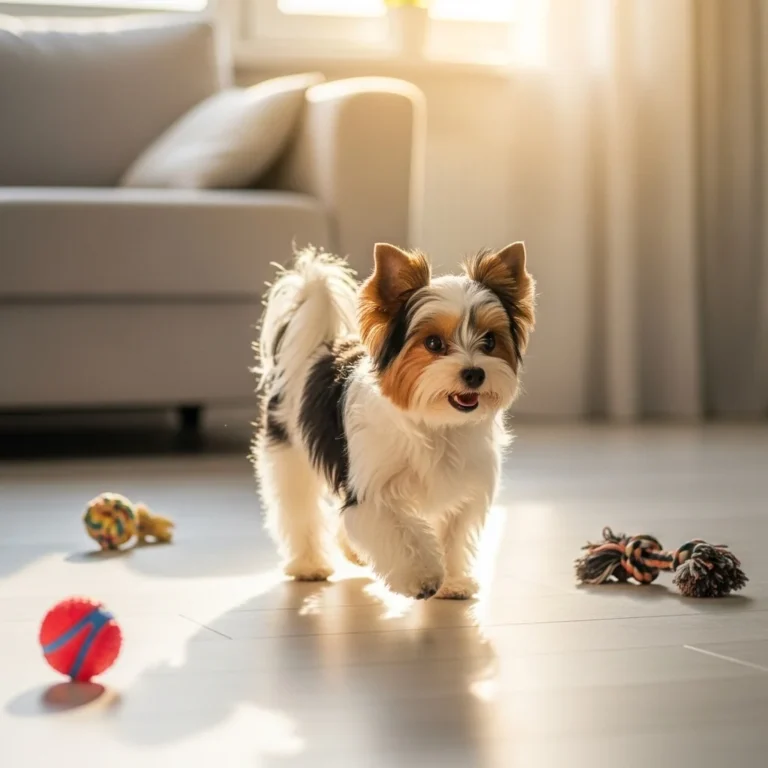
colitis in puppies cure
Hey there, puppy parent! Let me set the scene for you. You’ve just brought home this tiny, wiggly, heart-stealing ball of fluff. Life is a whirlwind of playful pounces, mischievous chewing, and those soulful eyes that could convince you to hand over your last chicken nugget. It’s pure magic.
But then… it happens. You’re cleaning up what can only be described as a not-so-pleasant surprise in the living room. And then another. And maybe you see a bit of mucus, or a streak of red that makes your own heart drop. “What’s wrong with my baby?!” you think, panic starting to set in.
Sound familiar? Take a deep breath and give yourself a pat on the back for being an attentive pet parent. You’ve just stumbled upon one of the most common puppyhood hiccups: colitis. I’ve been there more times than I’d like to admit with my own furry crew! The good news? While it can look super scary, it’s often very manageable. Consider this your go-to, friendly guide from a fellow dog lover who’s been in the trenches. We’re going to chat all about what colitis is, how to help your pup feel better, and how to prevent it from crashing the puppy party again.
Notice: You will find the sources at the end of the article.
Understanding Colitis: What’s Going On Inside?
Let’s ditch the confusing medical jargon and break this down in a way that actually makes sense. Imagine your puppy’s tummy is like a super-efficient processing plant.
What is colitis in puppies?
So, “colitis” – it sounds a bit intimidating, right? But at its core, it’s pretty simple. It just means inflammation of the colon. The colon is basically the last stop on the digestive train ride. Its job is to absorb water and electrolytes from the food mush that’s left and then form it into a nice, solid… well, you know.
When the colon gets inflamed and irritated, it’s like the factory workers have gone on strike. It can’t do its job properly, so instead of solid waste, you get frequent, urgent, and messy diarrhea. Think of it like this: if you have a sore, inflamed throat, it hurts to swallow. If your pup has an inflamed colon, it hurts to, ahem, process.
What causes colitis in puppies?
Ah, the million-dollar question! It’s rarely just one thing. Puppies are curious little beings, and their world is explored primarily with their mouths. The causes are often a perfect storm of puppy-ness.
- Dietary Indiscretion (The “Oops, I Ate That!” Factor): This is, hands down, the top culprit. Our furry toddlers will eat anything. A stray piece of pizza crust, a mystery item from the trash can, a new treat that didn’t agree with them, or even just a sudden switch from one puppy food to another. Their digestive systems are so delicate and still developing! As my friend Dr. Sarah C. Miller, a vet who specializes in tummy troubles, always tells me, “A puppy’s gut is a delicate ecosystem. Sudden changes or foreign invaders can throw the whole thing out of whack.”
- Stress: Just like us, puppies can get stressed, and their gut is often the first to complain. Moving to a new home, being separated from their littermates, a loud thunderstorm, or even a change in your work schedule can trigger what we call “stress colitis.” It’s their little bodies saying, “Whoa, everything is different and I’m not sure how I feel about it!”
- Parasites: The uninvited guests! Puppies are notoriously prone to pesky internal parasites like roundworms, hookworms, whipworms, and microscopic troublemakers like Giardia and Coccidia. These guys set up shop in the intestines and cause all sorts of inflammation and irritation. This is why your vet is so adamant about those regular deworming schedules!
- Bacterial Imbalances or Infections: Sometimes, the bad bacteria in the gut stage a coup and overwhelm the good guys. This can happen after a round of antibiotics (which can wipe out the good flora along with the bad) or from drinking from a muddy puddle.
- Viral Infections: Scarier ones like parvovirus or coronavirus can cause severe GI upset, including colitis. These usually come with other serious symptoms like intense lethargy and vomiting.
- Food Allergies or Sensitivities: It’s less common in super young pups, but some can be sensitive or even allergic to certain ingredients in their food, often a specific protein like chicken or beef.
- Inflammatory Bowel Disease (IBD): While typically an older dog issue, persistent, chronic colitis can sometimes point to an underlying condition like IBD, which needs a more specialized long-term plan.
- Other Underlying Health Issues: Occasionally, colitis can be a symptom of a different health problem altogether.
Is colitis in puppies serious?
This is the question that keeps every puppy parent up at night. The honest answer? It can be, but most of the time, it’s not.
For many pups, colitis is a short-lived, annoying episode that clears up with some simple TLC and maybe a quick trip to the vet. It’s uncomfortable for them and worrisome for you, but not life-threatening.
However, if it’s left untreated or if the root cause is something nasty (like a massive parasite load or Parvo), it can lead to some scary complications:
- Dehydration: All that diarrhea means they’re losing water and essential electrolytes fast. For a tiny puppy, this can become serious very quickly.
- Weight Loss and Malnutrition: If their gut isn’t absorbing nutrients, they can’t grow and thrive.
- Weakness and Lethargy: A sick pup is a sleepy, sad pup.
- The Real Problem Gets Worse: If the colitis is just a symptom of a bigger issue, ignoring it lets that primary condition progress.
The bottom line? Always take it seriously. When in doubt, call your vet. It’s always better to be safe than sorry.
How common is colitis in puppies?
Incredibly common! Seriously, if your puppy has it, welcome to the club no one wanted to join. Vets see cases of puppy colitis all the time. Between their curiosity, developing immune systems, and all the life changes they go through, it’s practically a rite of passage. So, take comfort in the fact that you’re not alone, and your vet knows exactly what to do.
Symptoms and Diagnosis: What to Look For and How Vets Figure It Out
Knowing what to watch for is half the battle. It helps you know when to make that vet call and what to tell them.
What are the symptoms of colitis in puppies?
The main event is always diarrhea, but it’s not your average run-of-the-mill loose stool. With colitis, it has a certain… personality.
- Frequent, Small Amounts of Diarrhea: You might let them out and they’ll strain to go, but only produce a tiny bit. Five minutes later, they’re asking to go out again! This is because the inflamed colon feels constantly full.
- Mucus in Stool: This is a classic sign. The colon produces mucus to protect itself, and when it’s angry, it produces a lot. The stool can look slimy or have a jelly-like coating.
- Fresh Blood in Stool (Hematochezia): Seeing bright red blood or streaks can be terrifying, I know. But this often comes from the very end of the digestive tract (the colon/rectum) due to the inflammation irritating the lining. While it always warrants a vet visit, a small amount of bright red blood is typically less immediately alarming than dark, tarry stool, which indicates bleeding higher up.
- Straining to Defecate (Tenemus): They might squat and push and push, looking uncomfortable, even after they’ve already gone.
- “Oops, I Couldn’t Make It!” Accidents: The urgency is so high that even the most well-intentioned puppy might not have time to signal they need to go out.
- Pain or Discomfort: Some pups will whine, seem restless, or walk with a hunched-back posture.
- Vomiting (Sometimes): While the main issue is lower down, sometimes the overall upset can lead to vomiting too.
- Turning Their Nose Up at Food: A decreased appetite is a common sign something’s off.
- Lethargy: Less zoomies, more napping.
- Weight Loss: If this goes on for a while, they might start to drop ounces, which is a big deal for a growing puppy.
How is colitis in puppies diagnosed?
When you take your pup to the vet, they become a digestive detective. Here’s what their investigation looks like:
- The Full Story (History): They’re going to ask you a bunch of questions. Be ready to talk about the poop (frequency, appearance), what they’ve eaten, their vaccination history, and anything else you’ve noticed. The more details, the better!
- Hands-On Check (Physical Exam): They’ll feel your puppy’s belly for any pain or weirdness, check their gums, and take their temperature.
- The Poop Scan (Fecal Examination): This is a big one! You’ll likely be asked to bring a fresh stool sample. The vet will look at it under a microscope to hunt for those pesky parasites. Sometimes, they send it to a lab for a more thorough panel.
- Pro Tip: Dr. Alex B. Chen, a veterinary internist, once told me, “Skipping a fecal is like trying to solve a mystery with half the clues. It’s essential for pinpointing the cause of puppy colitis.” The American Veterinary Medical Association (AVMA) has great resources on why this is so important: www.avma.org (Just search for “fecal exam pets”).
- Blood Work: If things seem more serious, blood tests can check for dehydration, infection, and how their organs are doing.
- Pictures from the Inside (Imaging): In rare cases, if the vet suspects a swallowed toy or other blockage, they might recommend X-rays or an ultrasound.
- The Food Detective Work (Dietary Trial): If a food allergy is the prime suspect, your vet might suggest a special diet with a novel protein (like duck or kangaroo) to see if things clear up.
Often, diagnosing colitis is about ruling out the big, bad stuff and seeing that the symptoms and response to treatment all point to an inflamed colon.
Are there different types of colitis in puppies?
We can sort it into a few categories to make it easier to talk about:
- Acute Colitis: This is the most common. It pops up suddenly, often from eating something they shouldn’t have or a stressful event, and usually clears up within a few days to a week.
- Chronic Colitis: This is when it sticks around for weeks or keeps coming back. This often needs a deeper dive to find the root cause.
- Stress Colitis: A specific type of acute colitis triggered by—you guessed it—stress!
- Parasitic Colitis: Caused directly by a worm or protozoan party in the intestines.
- Dietary Colitis: The direct result of a food-related misadventure.
Treatment and Management: Getting Your Puppy Back on Track
Okay, this is the good part—how we help your fur baby feel better! The plan is always tailored to your specific pup and what’s causing the problem.
How is colitis in puppies treated?
The goal is twofold: soothe the angry gut and kick out whatever caused the problem in the first place.
- Tackle the Root Cause:
- Parasites? Get the right dewormer.
- Bacteria? The right antibiotic.
- Dietary oops? A bland diet is your new best friend.
- Stress? Let’s create a zen den for your pup.
- Soothe the Symptoms:
- Gut Rest: AKA the bland diet. More on this soon!
- Medications: To calm inflammation and control diarrhea.
- Fluids: If they’re dehydrated, they might need subcutaneous or IV fluids to get back on track.
- Probiotics: These are the “good guy” bacteria that help restore order in the gut.
What medications are used for colitis in puppies?
Your vet has a few tools in their medicine cabinet:
- Antibiotics:
- Metronidazole (Flagyl): This is the MVP for many colitis cases. It fights certain bacteria and parasites (like Giardia) and has a fantastic anti-inflammatory effect on the gut itself.
- Tylosin (Tylan): Another antibiotic that’s great for calming an irritated gut.
- Anti-diarrheal/Anti-inflammatory Meds:
- Sulfasalazine: This is a smart drug that’s designed to target the colon directly, reducing inflammation right where it’s needed.
- Loperamide (Imodium): Sometimes used, but only under direct vet orders. It can be risky for puppies and might mask a more serious problem.
- Dewormers: Specific meds for the specific parasite.
- Corticosteroids: For really stubborn or immune-related cases, drugs like prednisone can be used to powerfully suppress inflammation.
- Probiotics: Not a drug, but a key supplement. Vet-recommended brands like FortiFlora or Proviable are great for reseeding the gut with healthy bacteria.
Pawsitive Reminder: Always, always finish the entire course of medication, even if your pup seems 100% better. Stopping early is a recipe for a comeback tour.
What home remedies can help with puppy colitis?
Alongside your vet’s plan, these supportive steps can work wonders:
- The Bland Diet (Your Go-To Move): This gives the gut a much-needed vacation.
- Boiled Chicken & White Rice: Skinless, boneless boiled chicken breast shredded and mixed with plain, cooked white rice. A 1:2 ratio is perfect.
- Boiled Lean Ground Beef & Rice: Same idea, just make sure to drain all the fat off.
- Plain Canned Pumpkin (100% Pure): This stuff is magic! A teaspoon or two mixed in can help firm things up thanks to its soluble fiber. Crucial: Make sure it’s NOT pumpkin pie filling, which has spices and sugar.
- Avoid: Dairy, fatty foods, and all human treats.
- The Slow Switch: Once things are solid again, take 3-4 days to slowly mix their regular food back in with the bland diet.
- Hydration Station: Make sure fresh water is always available. If they’re not drinking, try ice cubes or a bit of low-sodium chicken broth.
- Puppy Peace and Quiet: Let them rest! Keep things calm and cozy.
- Frequent Potty Trips: More trips outside mean less stress for them and fewer accidents for you.
- Keep that Booty Clean: Diarrhea is tough on sensitive skin. Gently wipe their rear with a warm, damp cloth and pat dry. A little dab of coconut oil or pet-safe balm can protect the skin.
- Probiotic Power: A pet-specific probiotic can be a great supportive supplement.
Heads Up! These are helpers, not replacements for vet care. If things are bad or not getting better, the vet is your number one.
What is the best diet for a puppy with colitis?
After the initial bland diet phase, the long-term plan depends on why it happened.
- Veterinary Prescription Diets: These are fantastic for sensitive tummies. They’re highly digestible and formulated to be gentle.
- GI Diets: Like Royal Canin Gastrointestinal or Hill’s i/d. They’re easy to break down and often include prebiotics.
- Novel Protein Diets: If food allergies are the suspect, these diets use unique protein sources (duck, venison) or hydrolyzed proteins (broken down so the immune system doesn’t recognize them) to avoid triggering a reaction.
- High-Fiber Diets: For some pups, a bit more fiber helps bulk up the stool, but this isn’t for everyone. Your vet will guide you.
- Homemade Diets (Be Careful!): If you go this route, you must work with a veterinary nutritionist. Chicken and rice alone is not a complete and balanced diet for a growing puppy.
The Golden Rule: The best diet is the one that keeps your puppy’s tail wagging and their poop perfect.
How long does it take for colitis to clear up in puppies?
It really depends on the pup and the cause:
- Simple, Acute Colitis: You often see big improvements within 2-3 days, and it’s usually resolved in a week.
- Parasite-Related: Starts improving within days of deworming, but the full course of treatment might be longer.
- Chronic Colitis: This can be a journey of weeks or months, involving diet trials and fine-tuning.
Patience is key! And remember, finish all the meds!
When should I take my puppy to the vet for colitis?
With puppies, my motto is: “When in doubt, check it out.” They are small and can go downhill fast.
Call your vet immediately if you see:
- Diarrhea that is pure water or has a lot of blood.
- Vomiting so they can’t keep water down.
- Your puppy is super lethargic, weak, or collapsed.
- No interest in food for more than a day.
- Signs of dehydration (dry gums, skin that doesn’t snap back, sunken eyes).
- Obvious abdominal pain.
- A fever.
- Your puppy is very young, tiny, or not fully vaccinated.
- No improvement after 24-48 hours of bland diet and rest.
- Things get worse at any point.
A quick call can save you a lot of worry and your pup a lot of discomfort.
Prevention and Long-Term Care: Keeping the Gut Happy
An ounce of prevention is worth a pound of cure! Let’s talk about how to keep your puppy’s digestive system sailing smoothly.
Can colitis in puppies be prevented?
You can’t bubble-wrap them, but you can drastically reduce the risks!
- Be a Food Ninja:
- Slow Food Transitions: Always switch foods over 7-10 days.
- Stick to Their Kibble: Avoid table scraps and rich treats.
- Puppy-Proof Your Trash: Make sure those canine dumpster divers can’t get a prize.
- Stay on Top of Vet Visits:
- Vaccinations: Keep them on schedule to prevent nasty viruses.
- Deworming: Don’t skip those monthly preventatives!
- Regular Poop Checks: Yearly fecal exams are a great idea.
- Create a Zen Puppy:
- Routine is Your Friend: Feed, walk, and play at roughly the same times each day.
- Positive Experiences: Socialize them gently and build their confidence.
- Plenty of Play and Sleep: A balanced puppy is a less stressed puppy.
- Cleanliness is Key:
- Fresh water daily.
- Wash those bowls!
- Supervise outdoor time to stop them from snacking on nature’s menu.
What is the prognosis for puppies with colitis?
For the vast majority of puppies? It’s excellent! Most bounce back quickly and completely with a little help.
For the few with chronic issues, the prognosis is still very good; it just might require a more dedicated management plan and a close partnership with your vet.
Can colitis in puppies recur?
It can, especially if the original trigger wasn’t fully identified or if your pup is a repeat offender when it comes to eating things they shouldn’t. Learning your individual puppy’s triggers is the best defense against a sequel.
Are certain breeds more prone to colitis?
Any pup can get it, but some breeds seem to have more sensitive systems:
- German Shepherds: Famous for their touchy tummies.
- Boxers: Can be prone to a specific, severe type called HUC.
- French Bulldogs & English Bulldogs: Often have sensitive stomachs.
- Labrador Retrievers: Their “eat first, ask questions later” philosophy puts them at higher risk for dietary mishaps.
If you have one of these breeds, just be a little extra vigilant.
Related Concerns: Broadening Our Understanding
Let’s clear up a few common questions and confusions.
Is puppy colitis contagious?
The inflammation itself? No. But the cause might be.
- Contagious Causes: Parasites (Giardia is super contagious!), viruses like Parvo, and some bacteria can easily spread to other dogs.
- Non-Contagious Causes: Stress, dietary mistakes, and food allergies are not contagious.
If you have other dogs, it’s smart to keep the sick pup somewhat separated until you know what you’re dealing with, and always wash your hands!
Can stress cause colitis in puppies?
100%, yes! Stress colitis is a very real thing. Their little bodies react to big emotions, and the gut is often the first to sound the alarm. A consistent, predictable, and loving home is the best medicine.
What’s the difference between colitis and other digestive issues in puppies?
It’s easy to mix them up! Here’s a quick cheat sheet:
- Colitis: Problem is in the large intestine. Main sign: frequent, small, mucus-y diarrhea, sometimes with fresh blood. Straining is common.
- Gastritis: Problem is in the stomach. Main sign: Vomiting. Diarrhea might be a side effect.
- Enteritis: Problem is in the small intestine. Main sign: large-volume, watery diarrhea. Weight loss can happen.
- Pancreatitis: Problem is the pancreas. Main sign: severe vomiting, intense abdominal pain, often after a fatty meal. This is an emergency.
- Foreign Body: Something is blocking the gut. Main signs: vomiting, pain, not eating, can’t poop. This is also an emergency.
Your vet will play detective to figure out which one it is, and your detailed observations are their best clues!
Final Thoughts: A Happy, Healthy Puppy Awaits
Whew! That was a lot, but you’re now armed with knowledge. Dealing with colitis is scary, but it’s a bump in the road, not the end of the journey. Puppies are incredibly resilient.
Remember the mantra: Don’t panic, but don’t ignore it. Watch your pup, provide comfort and a bland diet, and let your vet be your guide. With a little patience and a lot of love, you’ll have your happy, bouncy, healthy puppy back in your arms before you know it.
Here’s to happy tummies and even happier puppies
please leave comment
you may like it





sources
https://vcahospitals.com/know-your-pet/colitis-in-dogs
https://www.akc.org/expert-advice/health/colitis-in-dogs
https://www.msdvetmanual.com/digestive-system/diseases-of-the-large-intestine-in-small-animals/colitis-in-small-animals
https://www.pdsa.org.uk/pet-help-and-advice/pet-health-hub/conditions/colitis-in-dogs
https://veterinarypartner.vin.com/default.aspx?id=4951545&pid=19239
https://www.petlandwellness.com/stress-colitis-in-dogs-signs-treatment-and-prevention

